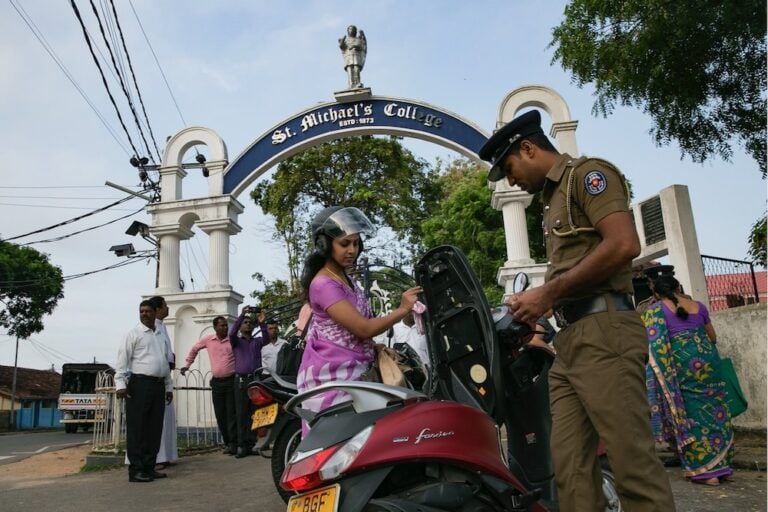(FMM/IFEX) – The following is a 12 July 2004 FMM and Centre for Policy Alternatives joint statement: FMM and CPA appeal for Democratisation of State Media In a joint memorandum with the Centre for Policy Alternatives (CPA), the Free Media Movement (FMM) urged all political parties to commit themselves to a common programme of action […]
(FMM/IFEX) – The following is a 12 July 2004 FMM and Centre for Policy Alternatives joint statement:
FMM and CPA appeal for Democratisation of State Media
In a joint memorandum with the Centre for Policy Alternatives (CPA), the Free Media Movement (FMM) urged all political parties to commit themselves to a common programme of action aimed at democratising the State-controlled media in Sri Lanka.
In a meeting with civil society groups on Thursday, 8th July 2004, the Joint Opposition, which commands a majority in Parliament, committed to introducing legislation so as to assign to the Constitutional Council established under the 17th Amendment to the Constitution the powers relating to the appointment and dismissal of Boards of Directors and Chairpersons, Directors General, Editors and other high officials of State-media institutions. At present, the law and practice in this respect is that the Minister in charge of the subject of media, information or mass communications makes such appointments based on political considerations.
While endorsing the commitment of the Joint Opposition, we nevertheless feel that for real and meaningful change to occur, more far reaching reforms, as recommended in our memorandum, are necessary. Such reform requires the active support of all political parties, including the Government.
Following is the text of the joint memorandum submitted by CPA-FMM to all political parties:
Reform of the State-owned or controlled media institutions has been on the agenda for several years in Sri Lanka. Recent events have compounded the urgent necessity for introducing reforms in this sector, which we urge all political parties to actively support.
There are several key principles common to the reforms reiterated below. The first principle concerns the need to remove political control over the public service media, and includes bringing Sri Lanka in line with best practices in modern democracies, whereby public service media constitute a fundamental instrument of pluralism and the realisation of civil and political rights of citizenship. The second major principle concerns the design of institutions that are efficient at the same time as they are transparent and accountable. The need therefore is to find an appropriate institutional form that gives expression to these principles, which in turn represents a move away from the anachronistic assumptions that govern the state media structures in Sri Lanka today. The following measures are suggested as a basis for discussion:
An independent Media Commission was part of the original proposals of what was eventually enacted as the 17th Amendment to the Constitution. The need for such a Media Commission has only increased, but a constitutional amendment has to be promulgated with bi-partisan support to set up an independent Media Commission with the same constitutional standing as the other independent bodies listed in the Schedule to Article 41B of the Constitution. The independent Media Commission should be appointed on the recommendation of the Constitutional Council and must feature the representation of working journalists. The Commission, once constituted, would have overall oversight of public service media and would be responsible and answerable to Parliament.
Within this framework, political control over the state-owned Sri Lanka Broadcasting Corporation (SLBC), and the Sri Lanka Rupavahini Corporation (SLRC), must be immediately relinquished in favour of the regime for public service broadcasting.
In addition to this, the recommendations of the Sidath Sri Nandalochana Committee on the broad-basing of ownership of the Associated Newspapers of Ceylon Ltd (ANCL) need to be immediately implemented.
A draft Freedom of Information Bill was given the approval of Cabinet and the President in February 2004, but was unfortunately not passed following the dissolution of Parliament. This draft Bill should be immediately presented to Parliament.
We feel that this programme of action represents a practical means of moving forward from the current unsatisfactory situation.
Submitted for the consideration of all political parties
July 2004


